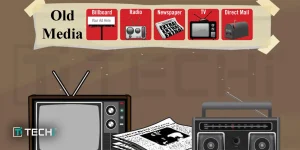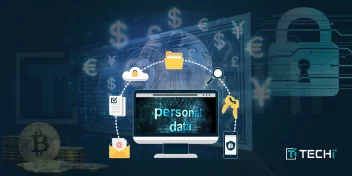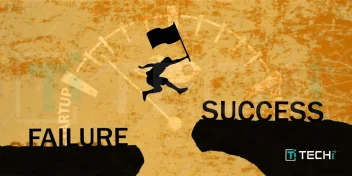Though we have, over the past few years, become accustomed to rather strange, aggressive ideas from those who run the movie and music businesses, the latest move from the RIAA and MPAA is a little astounding.
Today, the Electronic Frontier Foundation, an organization dedicated to defending internet users’ rights, outlined some of the suggestions made by the media conglomerates for protecting their content. They, along with many other players, were asked to weigh in on how intellectual property should be treated in a changing, networked world.
And you know what the MPAA and RIAA suggested? Well, among other things:
- Anti-infringement spyware to be installed on users systems
- Filtering technology on internet service provider’s networks to prevent the spread of copyrighted material
- ‘Inform’ and ‘educate’ (i.e. harass) entrants to the US about the ‘dangers of pirated material’
- Intimidate countries that do not agree with these policies, using US economic clout to threaten them
- Use federal resources to employ agents to crack down on copyright thieves
So, how does that sound? Having spyware installed on your system and monitoring what you’re watching? Having your ISP filtered and throttled so that the MPAA and RIAA can control what gets distributed around the internet? Super, right?
But it isn’t simply the stunning sense of entitlement and invasiveness that’s the issue here. There’s something bigger at stake than simply ‘this is not how you should treat your customers’.
What the RIAA and MPAA have failed to understand is that new technologies like the web don’t simply represent new ways to pirate material – they are part of a seismic change in culture. By failing to understand that this is a cultural and not only technological or economic shift, media businesses are on the brink of becoming obsolete due to an obsession with control.
Technically speaking, you might articulate the change in how we think of these things by talking about ‘the economics of scarcity’ vs. the ‘economics of abundance’.
See, physical media is hard and expensive to create and distribute – not only do you have to find the materials to press CDs or print books, you have to then distribute them on trucks and trains and what-have-you. This creates an economic system based on scarcity, or as we more traditionally think of it, supply and demand. Limited by physical constraints like materials and labor, you make a certain number of things and then you set the price based on how many people want that thing.
But when you switch to digital, this scarcity often disappears. An MP3 or movie file or eBook is just ones and zeroes. After the initial costs of creation are done with, creating a new copy costs almost nothing. Suddenly, things are abundant – there is no physical limit on how many of something can be made – and this changes things.
But that’s only the economic side of things. Culturally, there has also been a shift in how we think of accessing content like TV shows or films or music. Whereas once it seemed to make sense to save our pennies for new records or films, it’s now much harder to justify that expense because there is so much available for free, legitimately or not. You know this – it’s everywhere around the web, because no-one can control the spread of information.
People will often talk about this in terms of ‘stealing’ or ‘entitlement’ – which has it merits – but also misses the point. Once a person has experienced the freedom of something like Napster or Bittorrent, it’s hard to put that genie back in the bottle. It isn’t about ‘thieving’ as much as it is this: once you know what it’s like to access culture with such freedom, going back to the basics of plunking down 20 bucks for a iTunes movie you can’t copy, can’t take to your friends house or can’t watch on your PS3 not only feels strange, it feels plain backwards and absurd.

By attempting to replicate the scarcity model in the digital age, media businesses have made clunky DRM’ed products and have alienated consumers, and they are voting with their wallets. It might seem sensible to try crack down on consumers, but it’s like trying to nail jello to wall: you can’t do it, and it wasn’t a very good idea in the first place.
That may be controversial – and might even seem to support piracy – but that isn’t the case.
There are solutions to this problem, among the best of which is something like ‘monetizing the pipes’ – i.e. charge for the distribution. Another option is something like eMusic, which makes you pay a set amount for a certain number of MP3s a month. More options include what Mike Masnick calls ‘finding other scarcities’ like musicians making money from live shows and merchandise but giving the music away for free.
But the point boils down to this: the world has changed. The internet works on principles of openness and exchange, and information and content ricochet around at an amazing rate. You just can’t control that without unfairly limiting people’ experiences of the web. This is what the MPAA and RIAA have failed to understand. They are still working in a mindset that is based on scarcity – we have a limited amount of product, and we have to protect it – and that’s an ideal that certainly was noble and fair years ago.
But when culture and technology have changed so drastically, and digital information fundamentally works through copying and spreading, it’s also a naive one. Rather than trying to lock down the entire internet and the exchange of media, those concerned should be looking to establish new business models or new products that draw people in (like Avatar, for example).
After all, if they don’t, it’s not we who will lose. People will continue to create, and they will find ways to finance and distribute them using new tech. The MPAA and RIAA, on the other hand – well, it may already be too late for them and the lumbering dinosaurs who lead them.





TDub
These days, information is free, and all revenues to those providers of information come from advertising. Costs are cut considerably through distributing the information on the internet, and distribution is much more wide spread. Websites are cheap to create and maintain, and with no physical media to produce, information providers are making much more profit. Movies are expensive to produce, but with the creation of 3D and newer innovations that drive people to watch them in theaters, or with extra’s on DVD’s to make people purchase them, they will continue making money off the actual product. Times have changed – we demand more and more for less and less – and we are making it possible for that to occur with technologies.
Chris
Re: theft – what many of you are missing is the fact that the artist has invested their time, funds, and sweat equity into producing the work that you think should be “free”. The “information” is free – you’re free to sit at home, pick up an instrument & play any song that you like, all by yourself or with your friends.
It’s not the information you’re taking, however – it’s the product of others’ toil.
Sure, many people produce art without wanting anything in return. That’s their choice – but you do not have the right to take that choice away from them. Making great art takes a lot of time, money, and effort – and that is the place where record companies & other support organizations come in. They are supposed to help provide these things, and get a cut of the profits in return.
Now, don’t misunderstand me – the RIAA, MPAA, etc. have been doing incredibly stupid things because they truly had no concept of how to adjust to the changing world. They hoped it would all go away – and when it didn’t then they just got scared & did (and still do) ridiculously stupid things in response.
It’s also true that many record companies have had a long history of screwing their talent out of their rightful money. However, taking their work without paying for it is not a solution either:
a) it only confirms to them that people want what they’re selling;
b) it steals the money, however pitiful, from the mouths of the artists whose work you like so much; and
c) it has a ripple effect across the professional entertainment industry, which employs hundreds of thousands of regular working people, who are not robber barons but are just trying to make a living doing what they love & and trained to do.
If you don’t like what the RIAA/MPAA do, great! Vote with your wallets AND YOUR ATTENTION. Patronize the independents, forget the mainstream. It’s the only way to REALLY get them to change.
Chris
that should read “taking their artists’ work”, btw.
castle
The record companies do not produce ‘great art.’ They fund the creation of a commercial product—most of which is crap, IMO—and profit from its distribution. Lady Gaga and Metallica do not equate with Beethoven and Bach.
The commercial music model is an artificial product of bad laws. Get some perspective; in the history of human culture, this model is a blink of an eye. It is a novelty and its time will come to an end.
The model only exists due to a misunderstanding and perversion of property rights. Read Mark’s reply to navneetalang above. Taking a man’s guitar is stealing and it is unethical and immoral. Playing a tune he wrote, on your own guitar, is not—and it does not matter one bit whether he belted out the tune in a single afternoon or toiled for years to create it.
Musicians are supposed to be creative. An artist sans creativity is no artist at all. Why can’t musicians embrace creative business models like Trent Reznor does? Why do they shun business models that would allow them to prosper while retaining some amount of creative freedom? Why do they choose to take the easy route and stay on the record labels’ plantation?
Mr. Honest
So it’s only theft if someone steals a tangible item for sale that they can hold or taste,
but it’s not theft if someone takes an visual or audible item for sale that they can see or hear?
How exactly does THAT logic work? 😀
Creators and entertainers are the ones who suffer with piracy.
In a lot of cases, they create a product from which they want to profit. Unless they are offering it up themselves for free, why is it okay just to take it because it exists in a digital format that a user can easily seek out and download without paying for it?
As someone else mentioned, if you hear a tune and memorize it and sing it back yourself, you can’t be sued for that.
But you’re also enjoying YOUR rendition of it, and privately I might add.
It’s not the same as when you listen to a creator’s song and receive entertainment directly from their efforts, especially if they are presenting it in a commercial fashion.
You’re listening to THEIR creation. It’s not yours to do with as you see fit because you can’t always hold it in your hands.
And if you want to continue to enjoy their rendition of it, you should really do so in the manner they have presented it to you, either for sale, or free online, or through the radio, etc.
It IS very similar to buying a cake or a car.
Yes, you can look at what someone else has done, and replicate it on your own and it’s yours. Feel free to bake your own cake or build your own car based on one that you’ve seen.
But if you want the cake someone else baked, or the car someone else made, you need to pay them for their creation if they are selling it and not giving it away for free.
Same holds true for musics, or books, or film, etc.
paul
Their sales are down, how do you know that people aren’t already skipping the formulaic garbage served by the RIAA and spending their money elsewhere? You only have to look at the upsurge in movie attendances and the behemoth of gaming industry to see the masses no longer spend on pop songs like we used to 20 years ago.
Kids aren’t sitting around each others’ houses playing the latest thing, they spending their money on cell phones and other gadgets. Music simply isn’t as important today as it was yesterday. It also doesn’t help that all the radio stations have become talk channels playing the odd tune as dictated by their RIAA masters. The same tunes over and over! You cannot drum up demand, people turn off or flick to another station.
Joe
Forget that, Chris. Your assumption is that people are willing to pay nothing, but something like iTunes, which cuts out everyone but the artist and their music, sends money directly to the hard-working artist.
You’re short-sighting if you think buying CDs actually funds the artist; more than 75% of money earned, if that, goes to “everyone else” involved in making those cds.
Cut out the middle man and crush thousands of jobs whose nature is to simply leach of the artist.
I know myriad artists who make their living by selling their music on iTunes, or self-publishing their own cds replete with quality cover art, etc.
I’m calling shenanigans on this bullshit right now, because people seem to constantly forget the reality of the internet: We’ll pay for things we deem worthy of buying. Hence “vote with your wallet”.
There is no sense of entitlement, in my eyes. I’m not going to waste 15 bucks paying for a movie that’s crap. I WILL go see a movie in the theatre if I’ve watched it at home and enjoyed it immensely; at least in that case, I feel the money is deserved.
This notion of entitlement is a farce. It’s called quality control, and it’s finally a power the consumers can wave. Companies are just upset they can’t fool us, anymore. That’s why bringing up the current model of supply-and-demand was brilliant: it attacks the fundamental problem with purchasing anything.
As for being able to own and sell ideas, well, I don’t really want to get into that.
Across from marty
Ituneds takes a wopping 25 percent on each digital sale.
Chris
@Tony: “Back in the day artists got by via patrons, same is going to happen in the future, mass consumerism was a bad phase we went though and thankfully it is drawing to a close.”
So you’re then in favor of no more movies & recordings being made except those being financed by millionaires with cash to throw around, who then get to dictate the content of what is created because they paid the bill? Of course, why should it bother you…since you’ll never see it anyway, unless you’re invited over to the mansion.
Yeah, glad that “bad phase” is passing…
Toby
Way to go Navneet, stirring up a hornets nest.. lol
Maybe I’ll do an article on Mac Vs. PC, stir up a good old fashioned (f)lame war..
Logan
This is funny. Of course they understand. They just want money, like everyone else.